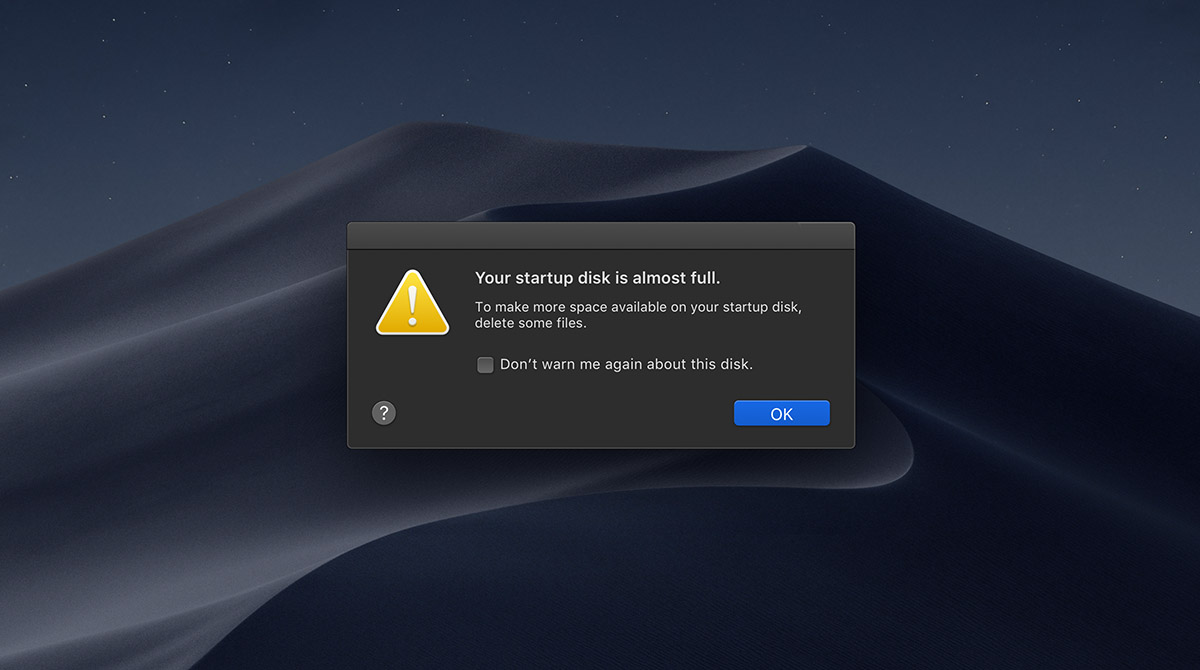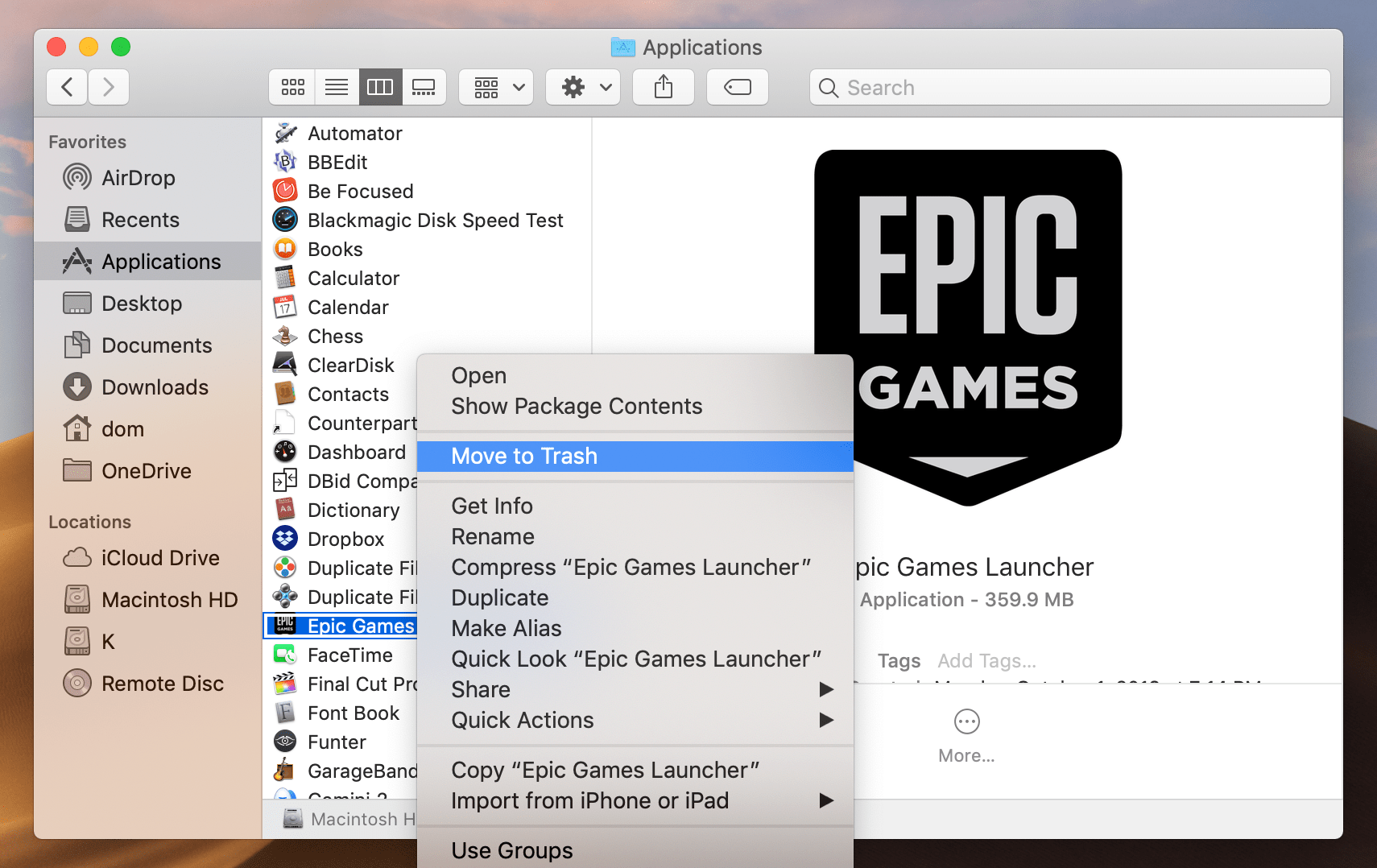Mac Game Taking Up Space Can't Delete
Our resident Mac Help guru, Peter Cohen, previously told us about the 'Other' storage category on Mac computers and what it catalogs: In short, you're seeing space taken up by plug-ins, documents, and caches stored by OS X.
It's worth noting that these files aren't normally harmful or wasteful to your computer's system; most are intended to help your Mac run efficiently, and ideally, you shouldn't ever have to clear out your Other files. Unfortunately, they can quickly clog up a computer low on storage — especially if you're storing a large number of iPhone or iPad backups.
Whether you're looking to free up space on your hard drive or just want to do some spring cleaning, here are some simple steps to get your Mac free and clear.
A note on what happened to 'Other' space in macOS Sierra and higher
When Apple added its storage management feature to macOS Sierra, called Optimize Storage, it reorganized what 'other' storage is and where it's located on the Mac. Much of it has been divided out through other categories so it's easier to find and remove.
The 100GB of Other storage I used to carry on my iMac is whittled down to just 5GB. You can still clean out old and unnecessary content from your Mac with macOS Sierra and High Sierra by using Optimized Storage. It's just a little easier to find those unused files than it was before.
A lot of the features of Optimized Storage remove content from your Mac and store them in iCloud. If you're concerned with how much storage you're using up in iCloud, you can customize or disable some Optimized Storage features to keep a balance between what's on your Mac and what's in iCloud.

What's this 'Purgeable' category all about?
- Jun 20, 2018 This will delete all your game data from this game, meaning even if you reinstall the game at a later date, none of the progress you have in the game will save. Any Questions? Hopefully, this helped you free up some space on your Mac. Let us know in the comments down below if you have any questions.
- Jun 04, 2016 I don't know if you figured it out. But if you haven't I figured out a solution. The OmniDiskSweeper lead me to the application support folder which pointed me to my iTunes. Go to iTunes preferences and then Devices. What's taking up space is your iPhone backups. Delete some of those bad boys and the space will free up.
- Oct 01, 2019 If you haven’t done so already, empty the Trash on your Mac. Otherwise, everything you deleted up to now is still taking up space on your startup disk. If you can, empty the Trash to free up space on your Mac. To empty the Trash, control-click the Trash icon in the Dock and select ‘Empty Trash.’.
- Jun 25, 2018 Our resident Mac Help guru, Peter Cohen, previously told us about the 'Other' storage category on Mac computers and what it catalogs: In short, you're seeing space taken up by plug-ins, documents, and caches stored by OS X. It's worth noting that these files aren't normally harmful or wasteful to your computer's system; most are intended to help your Mac run efficiently, and ideally, you.
- Oct 07, 2019 How to free up storage space on your Mac Save space by storing your content in iCloud or using built-in tools to find and remove large or unneeded files. Optimized Storage in macOS Sierra and later. can save space by storing your content in iCloud and making it available on demand.
If you check your system storage graph in macOS, you'll probably discover a category called Purgeable. This is part of Apple's Optimized Storage service. When you move your Documents into iCloud (part of the Store in iCloud component) and your hard drive gets low on storage, only recently opened files are kept on your Mac. Older documents are stored in iCloud, while a shortcut icon is kept on your Mac (files are automatically re-downloaded to your Mac as soon as you open them). The Purgeable files are what Optimized Storage will move to iCloud and delete from your hard drive only if your hard drive starts to get full. Purgeable files also include caches and temporary files that used to fit into the Other category, which will also be deleted as your hard drive starts to fill up.
The best laptop games for low-spec PCs. The space in which you construct your solution is so wide open that you feel like you’re piecing it all together entirely yourself, and the. Hello, i'm searching for games for low spec pc's, my specifications are1.5gb RAM3.0 GHz128mb graphic card (the biggest problem.-')So if everyone of you can tell me 5 games that you guys think. PC/Mac/Linux Society; Low spec-pc Games. Hello fellow GameSpoters I need some low spec games for my pc. My specs are the following. There's also a list for the best low spec pc games of.  Jan 08, 2018 Top Best Low-Spec PC & Laptop Games 2016 #2 - Duration: 5:54. Top Best Games Today 31,966 views.
Jan 08, 2018 Top Best Low-Spec PC & Laptop Games 2016 #2 - Duration: 5:54. Top Best Games Today 31,966 views.
Though your Other storage might have been spread out across categories in macOS Sierra and higher, you can still follow the below steps to manually clean up your Mac and get rid of unnecessary files.
How to check your storage space on your Mac
If you are concerned with how much storage space you have remaining on your Mac computer, you can check its usage folder to see how much space each category is taking up, including Other.

- Click on your desktop or the Finder icon from the Dock.
- Select the Apple Menu icon in the upper left corner of the screen.
Click on About This Mac.
Select Storage.
Your Mac breaks down its storage categories as follows: Apps, Movies, Photos, Audio, Backups, and — that annoying, undescriptive category — Other.
How To + Recommended. How to Uncover and Delete Hidden Files Cluttering Your Mac. Posted on May 31st, 2016 by Kirk McElhearn I recently looked at how you can get rid of duplicate files on your Mac.This is the first step toward cleaning out your Mac, and freeing up space on your drive.
How to remove cached files
Now that you know how much space your Other files are taking up, it's time to reduce their footprint on your Mac. You can start by removing items you don't need, including caches for your web browser, saved Apple Music streams, and photo previews.
A note on deleting cache folders: You only want to delete old and unnecessary files, as current cache files store your preferences. We strongly recommend only deleting cache files from old apps.
- Click on your desktop or select the Finder icon from the Dock.
- Select the Go menu in the upper left corner of the screen.
Click on Go to Folder.
Type ~/Library/caches into the text box. A list of caches from active apps will appear on your desktop.
- Select the app folder you wish to remove the cache from.
- Right-click (or control-click) on the app folder.
Select Move to Trash.
How to remove downloaded files
Chances are, your Downloads folder is stuffed with Other-type files, including installer packages, documents, and folders you have already made copies of somewhere else. If you want to make some room on your Mac, it may be time to clean out your Downloads folder.
- Click on your desktop or select the Finder icon from the Dock.
- Select the Go menu in the upper left corner of the screen.
Click on Downloads.
- Select the file you wish to remove.
- Right-click (or control-click) on the file.
Select Move to Trash.
If you want to save a file from the Downloads folder but don't want it clogging your drive, consider moving it to an external hard drive or flash drive, or uploading it to an online storage option like Dropbox.
How to delete old device backups in iTunes
If you tend to get new iOS devices fairly regularly, you may have unnecessary device backups stored on your computer via iTunes. Backups take up 4-5GB each, on average; there's no need to hold on to older device backups if you no longer have the device or have it stored in iCloud.
Third-party software that can help
While you don't need any third-party app to 'clean' your Mac, there are some very handy system access tools out there that make it easier to regularly remove unwanted files.
CleanMyMac 3
With CleanMyMac, you have easy access to a list of features that help you keep your Mac free of unnecessary junk. It scans your entire system and recommends files you should delete based on how old they are and whether they are considered unnecessary to your workflow. It's a lot like Apple's Optimized Storage, but with a few additional features. My favorite is the recommendation to delete all content related to an application. Sometimes, you'll end up with a couple of files left behind by an app when you delete it. CleanMyMac provides a one-button purge of everything associated with that app.
DaisyDisk
DaisyDisk scans your Mac and gives you a pie chart that makes it easy to see what files are using up the most space. You can identify files that are in the Other storage category and drag them to the delete box.
Onyx
Mac Game Taking Up Space Can't Delete Iphone
Onyx is a robust Mac system access tool that, in-part, can delete caches, logs, temporary items, and other files that find their way into the Other storage category.
Cocktail
Cocktail is another useful system access tool that you can use to clear caches, purge memory, and manage hidden Apple app settings, which might be automatically sending files into the Other category abyss.
Questions?
Still having trouble with Other? Let us know in the comments.
Updated June, 2018: Updated the section on deleting iPhone and iPad backups in iTunes to direct people to the article about doing that. The rest of these steps are still correct.
macOS Catalina
Main
We may earn a commission for purchases using our links. Learn more.
Concepts everywhereAnother day, another iPhone 12 Pro concept. How much would you pay?
Mac Game Taking Up Space Can't Delete Video
If reports are accurate we might be waiting a little while longer than normal for iPhone 12 Pro. But would you care if it looked like this?